Changing Roles of Governments and Companies
VerifiedAdded on 2021/04/17
|6
|951
|432
AI Summary
The assignment discusses three articles by Detomasi, Dong et al., and El Baz et al. that highlight the evolving roles of governments and companies in adopting corporate social responsibilities (CSR). The articles focus on collaboration between stakeholders, including governments, product markets, and consumers, to achieve CSR and sustainability. The strengths of the articles lie in their in-depth study of CSR, while weaknesses include shallow exploration of stakeholder collaboration. The assignment concludes that CSR can enable business organizations to gain stakeholder support for financial and environmental sustainability.
Contribute Materials
Your contribution can guide someone’s learning journey. Share your
documents today.
1 out of 6
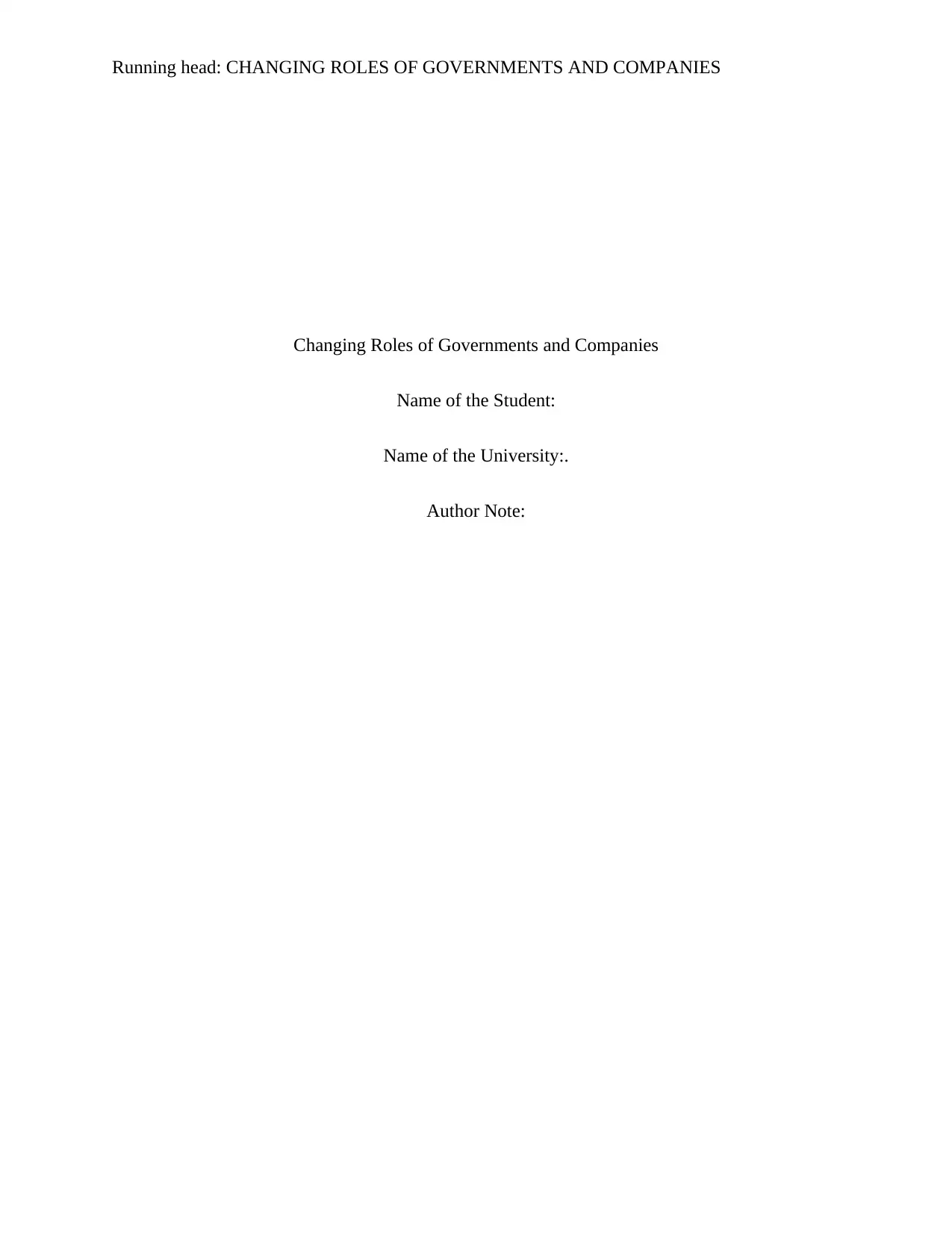
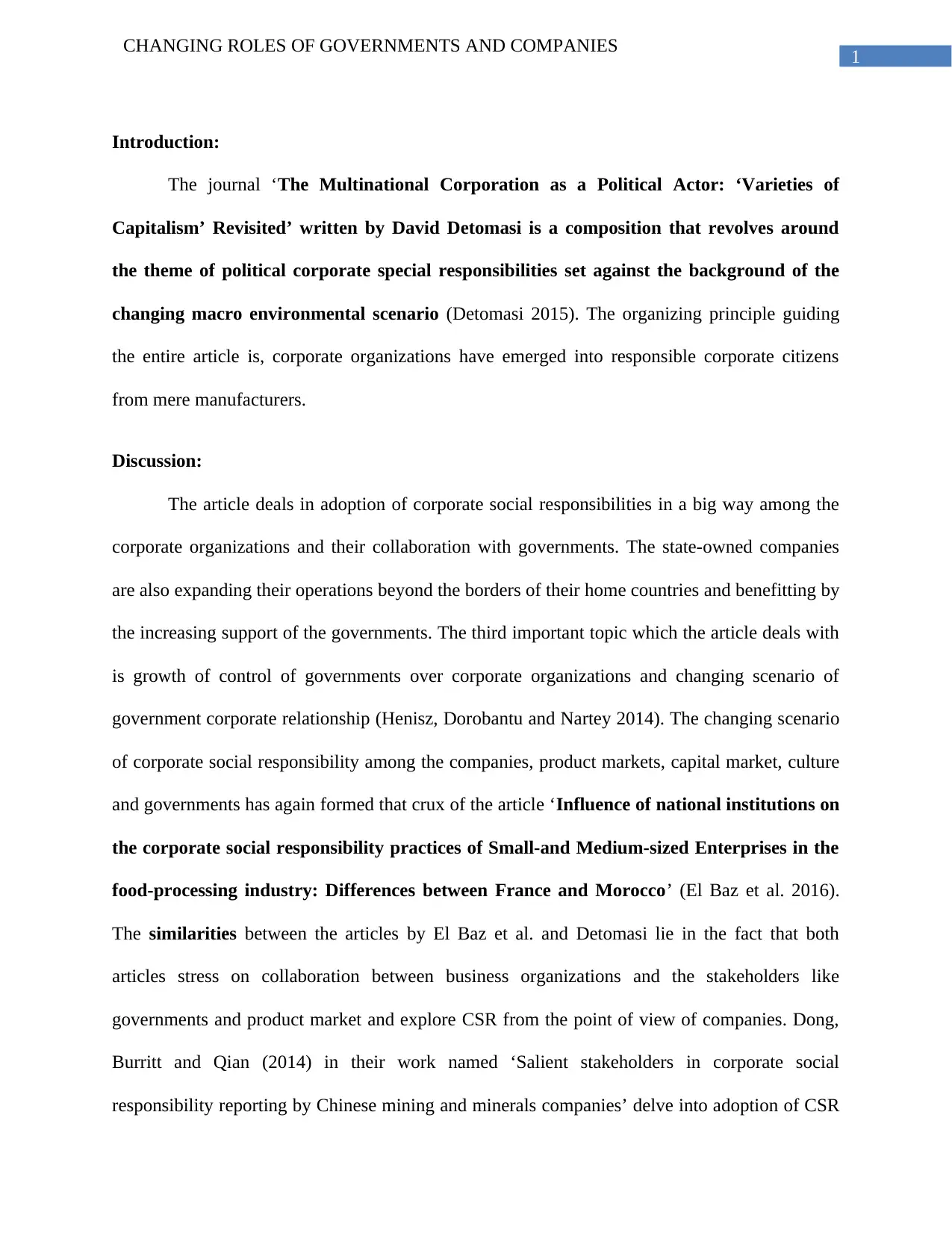
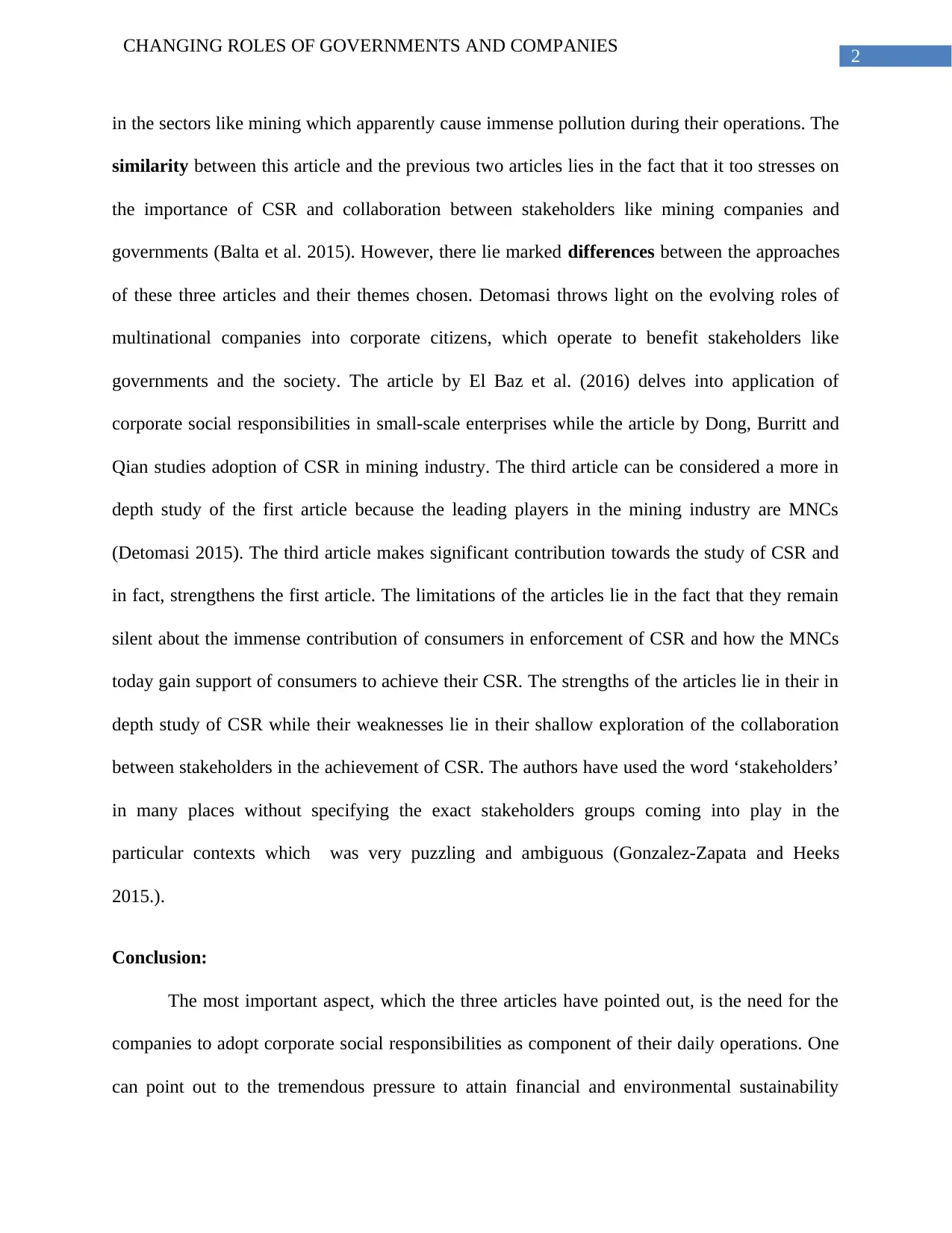
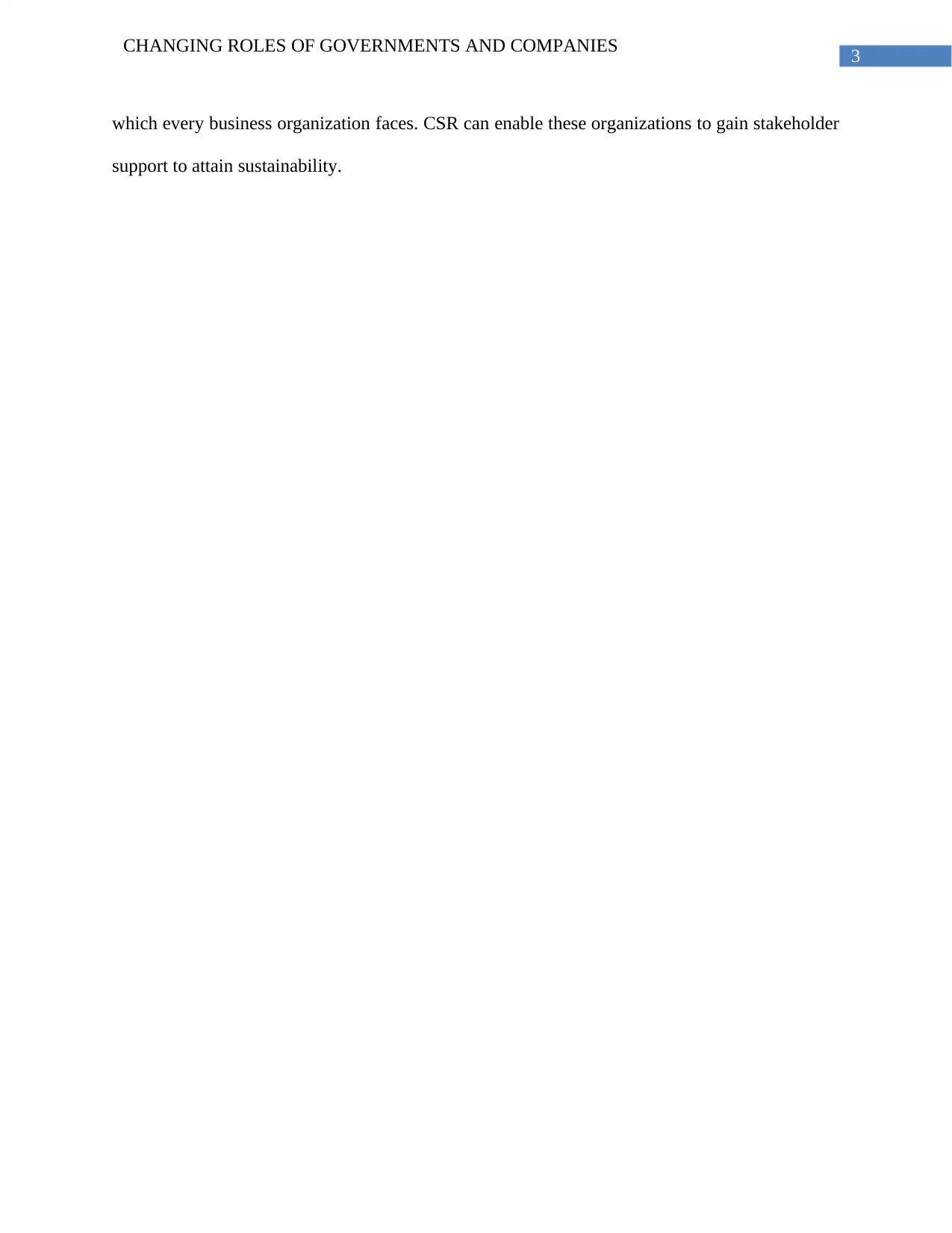
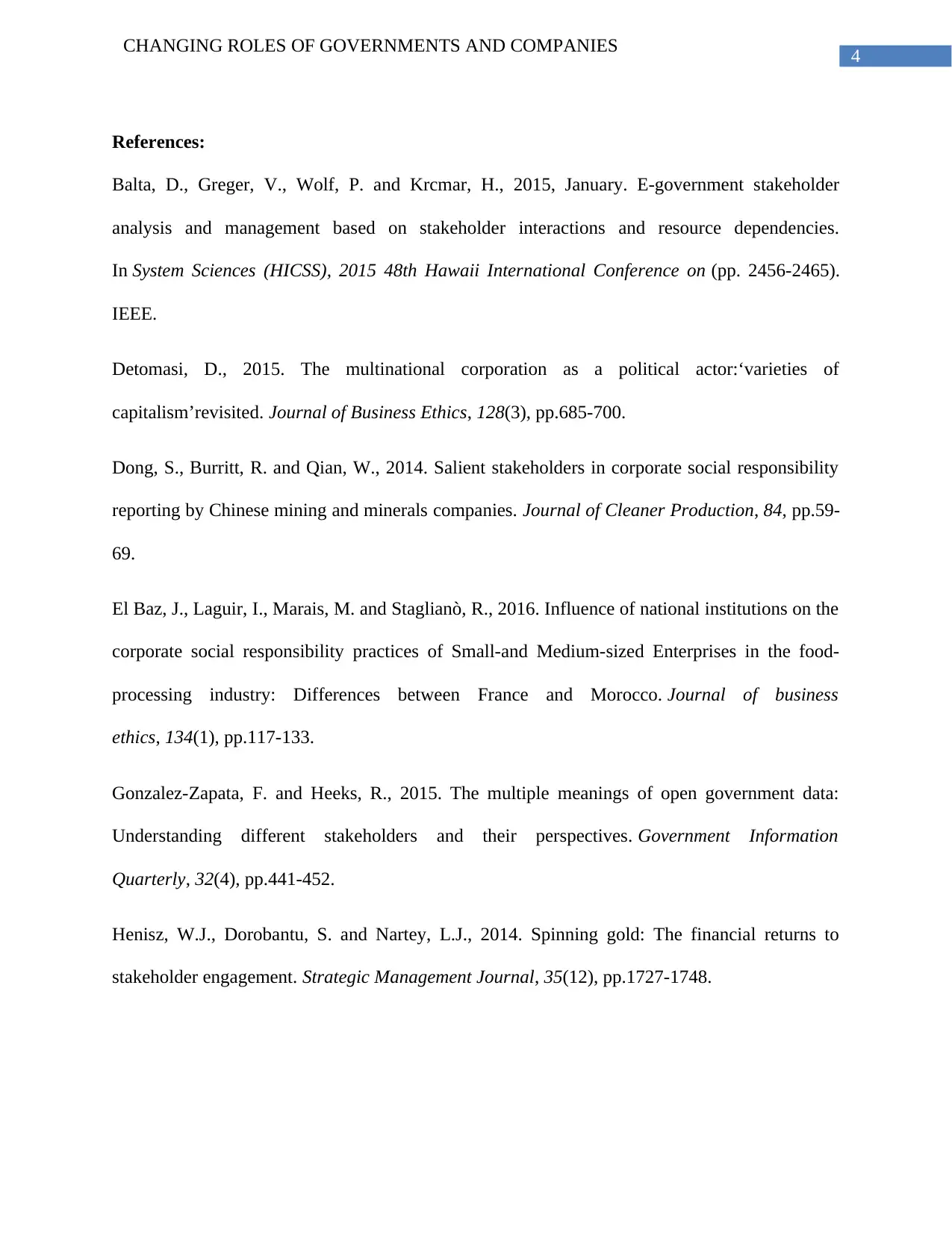
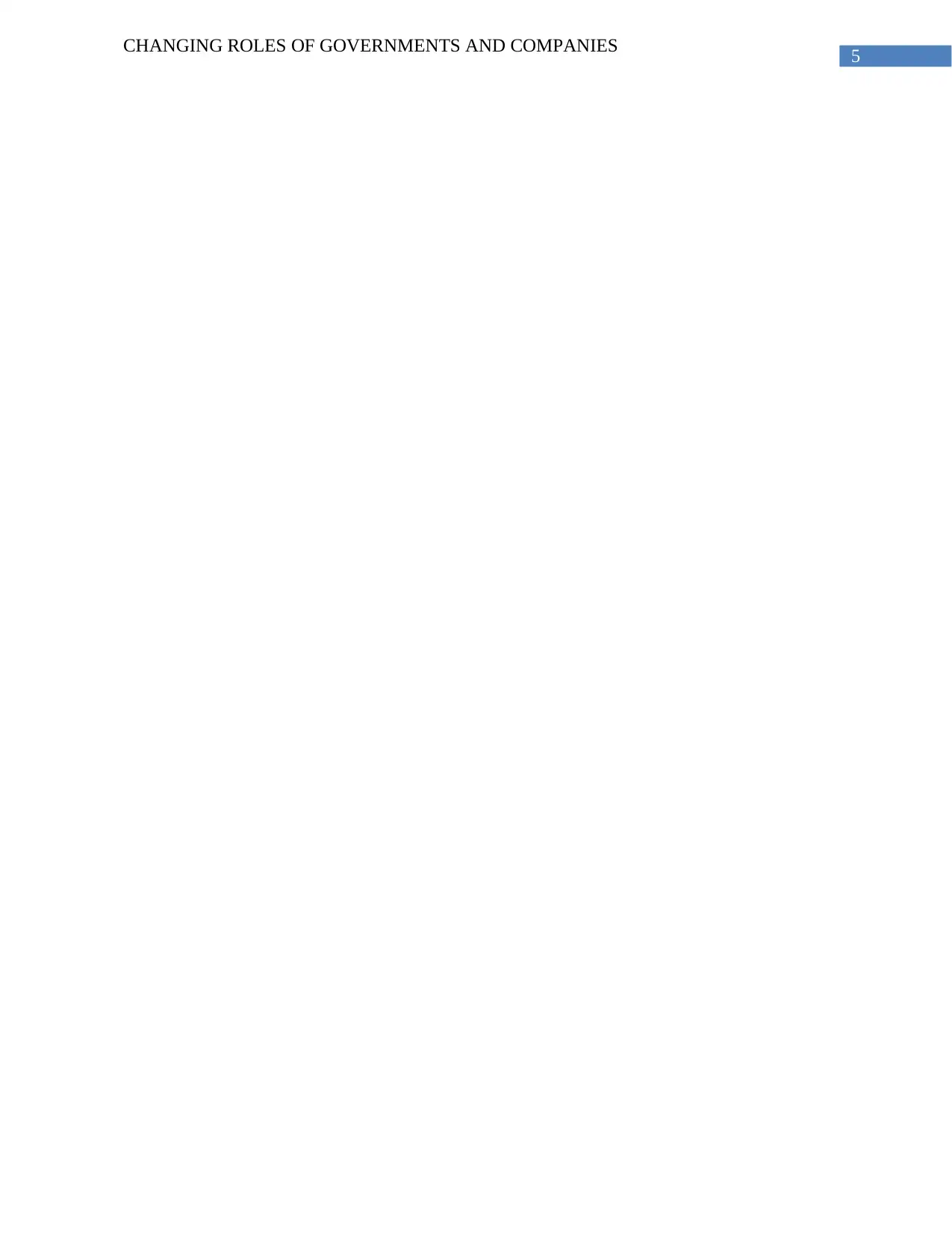



![[object Object]](/_next/static/media/star-bottom.7253800d.svg)